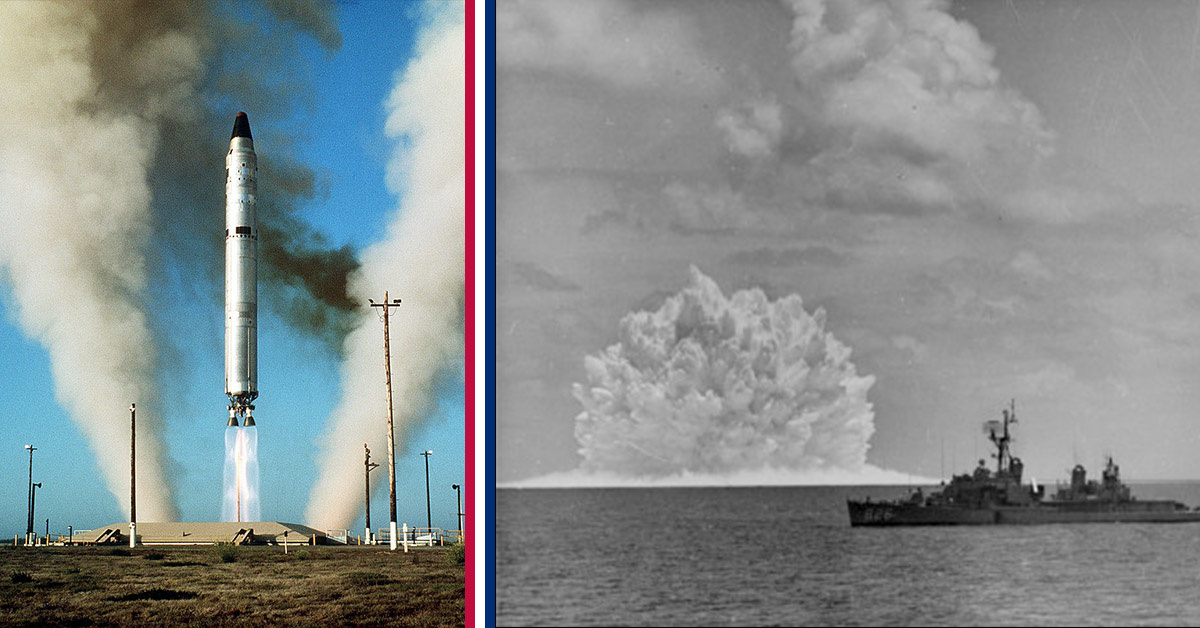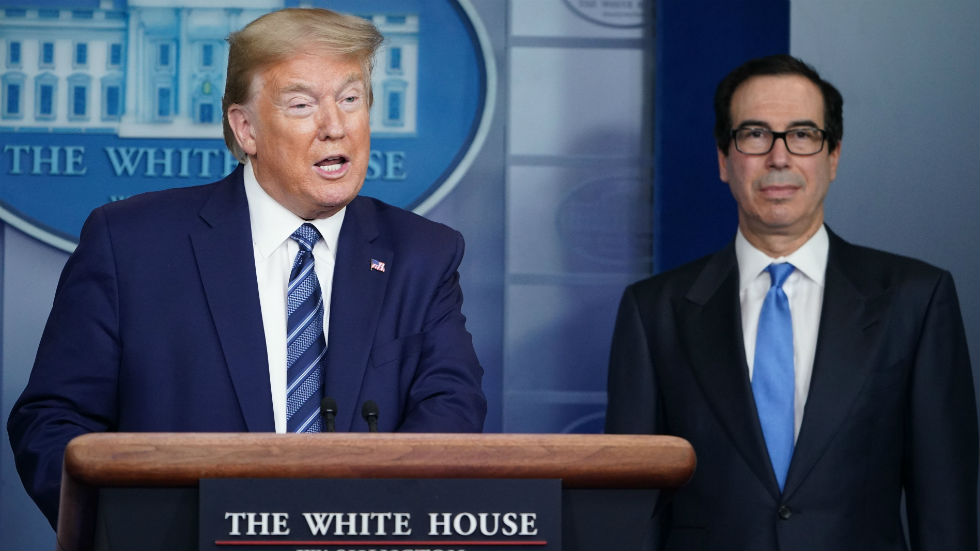Is A New Cold War Dawning? Examining The Deterioration Of U.S.-China Relations

Table of Contents
Economic Competition and Trade Wars
The economic rivalry between the US and China has intensified dramatically in recent years, evolving into a full-blown trade war. This conflict extends beyond simple tariffs and trade disputes; it's a battle for technological supremacy and global economic dominance. The imposition of tariffs on billions of dollars worth of goods has disrupted global supply chains, impacting businesses and consumers worldwide. This economic warfare reflects a broader shift towards protectionism, raising concerns about the future of global trade and international cooperation.
- Impact on global supply chains: The trade war has forced companies to rethink their supply chain strategies, leading to increased costs and uncertainty.
- Role of technology and technological advancement: The conflict is fueled by competition in crucial technological sectors, exemplified by the restrictions placed on Huawei and the debate surrounding TikTok, showcasing the crucial role of technological advancement in this new era of great power competition.
- The rise of protectionism and its consequences: The increasing use of economic sanctions and protectionist measures undermines the principles of free trade and risks slowing global economic growth.
- Specific examples: The Huawei case, involving restrictions on its access to US technology, and the attempted ban on TikTok, highlight the weaponization of technology in this strategic rivalry. These actions reflect a broader effort to limit China's technological advancement and global influence.
Geopolitical Rivalry and Military Buildup
Beyond the economic sphere, the US-China relationship is characterized by significant geopolitical rivalry. The South China Sea and the Taiwan Strait have become flashpoints, with both countries undertaking significant military buildups. China's increasing military modernization and assertive actions in the region are countered by a persistent US military presence in the Indo-Pacific, creating a volatile situation.
- China's increasing military power and modernization: China's investment in advanced weaponry, including aircraft carriers and hypersonic missiles, has significantly altered the military balance of power in the region.
- US military presence in the Indo-Pacific region: The US maintains a strong military presence in the region through alliances with countries like Japan, South Korea, and Australia, aiming to counter China's growing influence.
- The role of alliances and partnerships: Both the US and China are actively forging alliances and partnerships to bolster their strategic positions and influence in the Indo-Pacific.
- Specific military exercises and deployments: Regular military exercises and deployments by both sides further heighten tensions and increase the risk of miscalculation. The increased frequency of these activities underscores the intensifying nature of this geopolitical rivalry.
Ideological Differences and Human Rights
Fundamental ideological differences and contrasting views on human rights represent a significant obstacle to improving US-China relations. The US criticizes China's human rights record in Xinjiang, Tibet, and Hong Kong, highlighting issues such as the repression of Uyghurs, suppression of Tibetan culture, and the erosion of autonomy in Hong Kong. These differences in values and political systems fuel distrust and impede cooperation.
- Impact of differing views on democracy and human rights: The divergence in political ideologies and approaches to human rights creates a fundamental barrier to building trust and fostering constructive dialogue between the two nations.
- The role of international organizations: International organizations play a crucial role in monitoring human rights violations and exerting diplomatic pressure on China. However, their effectiveness is often limited by the geopolitical realities of great power competition.
- The impact of propaganda and disinformation campaigns: Both sides engage in propaganda and disinformation campaigns to shape international narratives and influence public opinion, further exacerbating tensions and mistrust.
- Discussion of the potential for further sanctions and diplomatic pressure: The potential for further sanctions and diplomatic pressure from the US and its allies remains a significant factor, with the potential to further escalate tensions.
The Role of Technology and Information Warfare
The competition between the US and China extends to the technological sphere, with implications far beyond economic gains. The race for dominance in 5G, artificial intelligence (AI), and cybersecurity is a crucial aspect of their strategic rivalry, impacting global power dynamics and national security.
- The implications of technological dominance for global power: Control over key technologies like 5G and AI will have profound implications for global power, influencing everything from economic competitiveness to military capabilities.
- Concerns about cyberattacks and data security: The increasing sophistication of cyberattacks and concerns about data security represent significant risks in this technological competition.
- The use of technology for propaganda and disinformation: Technology is increasingly used for propaganda and disinformation campaigns, undermining democratic processes and eroding trust in institutions.
- Discussion of potential for technological decoupling: The possibility of technological decoupling, where the US and China develop separate technological ecosystems, represents a significant risk to global innovation and economic interdependence.
Conclusion: Is a New Cold War Inevitable?
The deterioration of U.S.-China relations is driven by a complex interplay of economic competition, geopolitical rivalry, ideological differences, and technological competition. The escalating trade war, military buildup, human rights concerns, and information warfare all contribute to a climate of distrust and heightened tensions. While the risk of a new Cold War is undeniable, it is not inevitable. Opportunities for de-escalation and cooperation still exist. However, managing this critical relationship effectively requires careful diplomacy, strategic communication, and a commitment to addressing the underlying issues driving the conflict. Understanding the complexities of U.S.-China relations is crucial to preventing a new Cold War. Stay informed and engage in the conversation about managing great power competition. The future of global stability depends on it.

Featured Posts
-
 Cnn Exposes Tik Toks Role In Circumventing Trump Tariffs
Apr 22, 2025
Cnn Exposes Tik Toks Role In Circumventing Trump Tariffs
Apr 22, 2025 -
 Trump Administration To Slash Another 1 Billion In Harvard Funding Amid Growing Tensions
Apr 22, 2025
Trump Administration To Slash Another 1 Billion In Harvard Funding Amid Growing Tensions
Apr 22, 2025 -
 Conclave 2023 Assessing Pope Franciss Impact On The Church
Apr 22, 2025
Conclave 2023 Assessing Pope Franciss Impact On The Church
Apr 22, 2025 -
 Ukraine Conflict Trumps Peace Plan And Kyivs Crucial Decision
Apr 22, 2025
Ukraine Conflict Trumps Peace Plan And Kyivs Crucial Decision
Apr 22, 2025 -
 End Of Ryujinx Emulator Development Stops After Nintendo Contact
Apr 22, 2025
End Of Ryujinx Emulator Development Stops After Nintendo Contact
Apr 22, 2025
